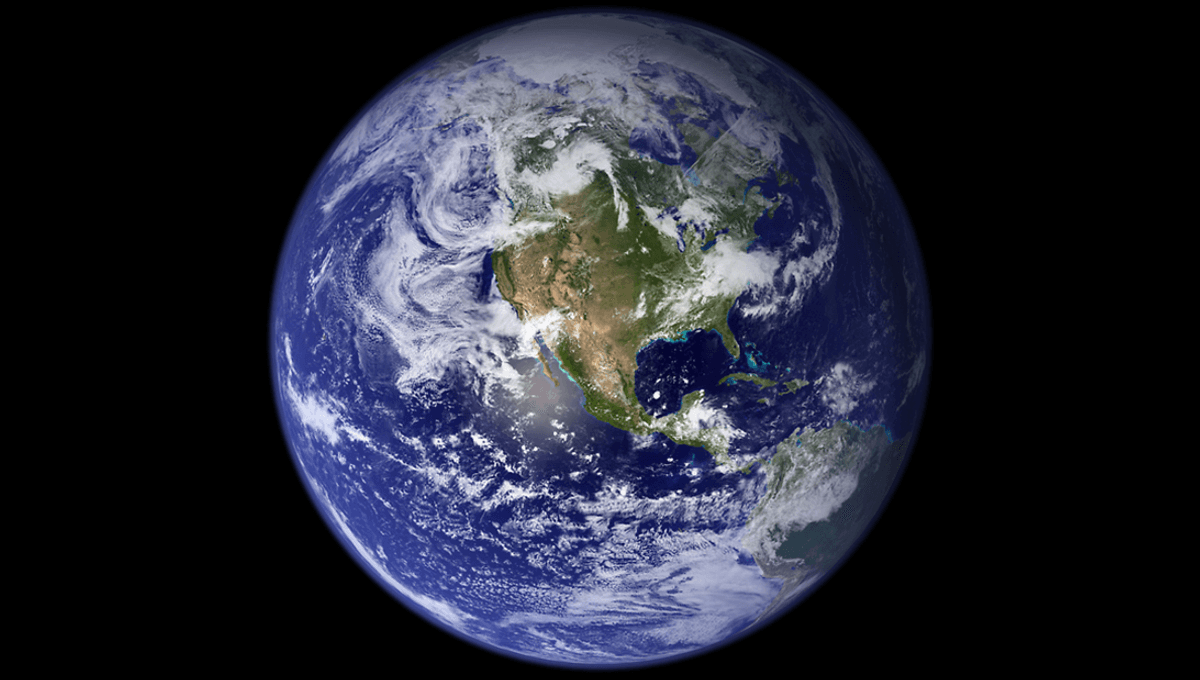
The Earth isn’t perfectly round IT’S FLAT. Ok not really, but it isn’t as perfectly round as you’d expect from lessons in primary school or glancing briefly at a globe, either.
First of all, why are planets round(ish)? This one is relatively simple: our old friend (and dastardly nemesis) gravity is the culprit. Planets are formed by bits of matter bumping into each other over time, forming bigger clumps. As the mass increases, so does the new planet’s gravitational pull, drawing in even more matter.
Congratulations, you now have a planet-sized clump. Gravity then sets to work smoothing it into the roundish objects we know and like to stand on/gawp at.
“An object’s gravitational pull will always point towards the centre of its mass. The bigger something is, the more massive it is, and the larger its gravitational pull,” Jonti Horner, professor of astrophysics at the University of Southern Queensland, explained in a piece for The Conversation.
“But the thing is, gravity is actually surprisingly weak. An object must be really big before it can exert a strong enough gravitational pull to overcome the strength of the material from which it’s made. Smaller solid objects (metres or kilometres in diameter) therefore have gravitational pulls that are too weak to pull them into a spherical shape.”
This is why smaller objects and planets have less of a uniform shape, for instance Comet 67P which looks a little like a rubber duck.
Ok, so why isn’t Earth a perfect sphere?
Gravity is too weak to pull the Earth into a perfect sphere, but it also isn’t the only force affecting a planet’s shape. In 1671, astronomer Jean Richter traveled from Paris, France, to Cayenne, French Guiana in South America. With him, he took a pendulum clock. While the clock had been accurate in Paris, he noticed that in Cayenne it ran slowly, losing a full two and a half minutes every day. No biggie, the pendulum was shortened to make the clock accurate. However, when he returned to Paris he found that the clock was running too quickly, by two and a half minutes each day.
Though it may feel the same when you jump up and down in Brazil or Canada, the rate at which you fall is not uniform. What mathematician Christiaan Huygens realized after hearing of Richter’s clock was that it was experimental evidence that the Earth was rotating. The clock’s change of pace was not due to some weird error, but because of the shape of the Earth itself.
Later, Newton showed using data from a similar pendulum clock and Jupiter’s equatorial bulge, that the Earth bulged at the equator due to the centrifugal force (think about how you are pushed to the outside edge of a roundabout as it spins) of its rotation, and estimated by how much. Near the equator, gravity acts upon you less than it does near the poles, as you are further away from the bulk of the Earth’s mass, explaining why the pendulum ran differently.
The faster the centrifugal force, the more likely you are to see these bulges. Dwarf planet Haumea, a planet roughly the size of Pluto, is shaped much like an egg due to how fast it is rotating. Earth, while not completely egg-like, bulges at the equator about 43 kilometers (27 miles).
Source Link: The Earth Isn't Perfectly Round – Here's Why